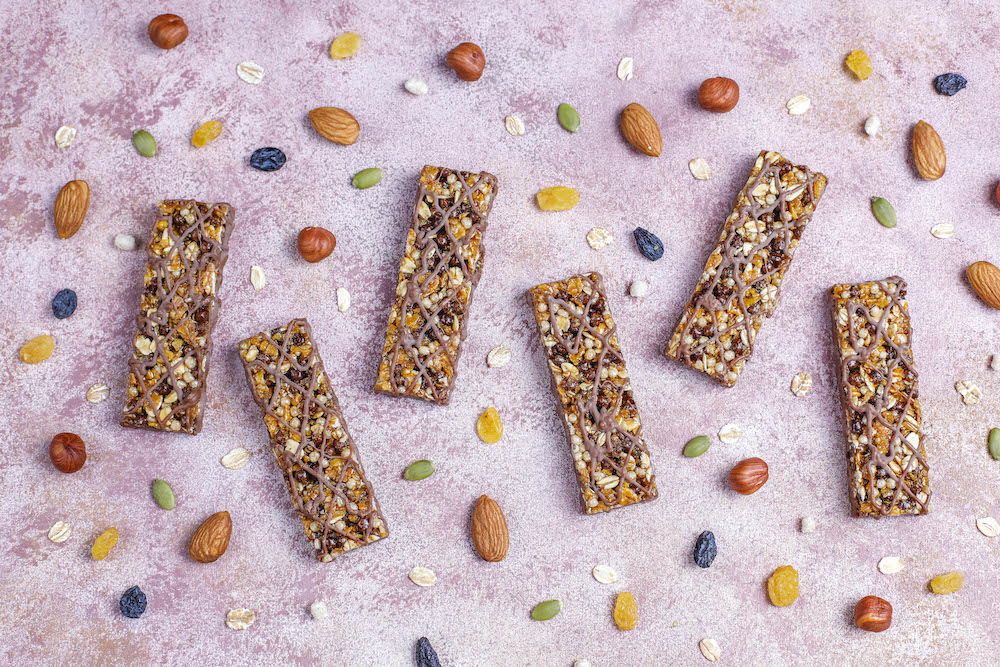Are breakfast bars from the supermarket really that healthy?

You’re probably familiar with the situation: a busy morning with no time for breakfast. Thankfully, there are breakfast bars that require no preparation and are within arm’s reach. Plenty of breakfast and cereal bars on the market claim to serve as a quick breakfast option, but are they actually healthy?
Breakfast bars come in various types, such as grain bars made from flour or whole wheat flour with raisins or other dried fruits; others are made from oats, corn, and/or rice. The beauty is you don’t need to prepare anything; you grab them, toss them in your bag, and eat them on the go or at work. That’s why they are so popular – they provide convenience and save time, allowing you to avoid skipping breakfast entirely.
Often high in sugar
Despite their convenience, breakfast bars often contain high amounts of sugar. Consuming a high amount of sugar during breakfast is generally discouraged. Each bar can contain around 3-10 grams of sugar, which is not ideal for breakfast consumption.
Lack of nutrients
In addition to the high sugar content, breakfast bars often lack important nutrients. During breakfast, consuming fruits, vegetables, fibres, and possibly nuts is recommended. While the packaging may suggest that breakfast bars are nutritious and provide a variety of nutrients, the reality is often different. Some breakfast bars may be healthier than others, but they certainly do not provide all the essential nutrients you would get from a balanced breakfast.
Should you stop eating breakfast bars?
You don’t have to stop eating them immediately because there are unhealthier options out there. However, it’s important to realise that you still need other nutrients that can be easily obtained from different breakfast options. Occasionally, indulging in a breakfast bar is fine, but it shouldn’t become a daily habit!


